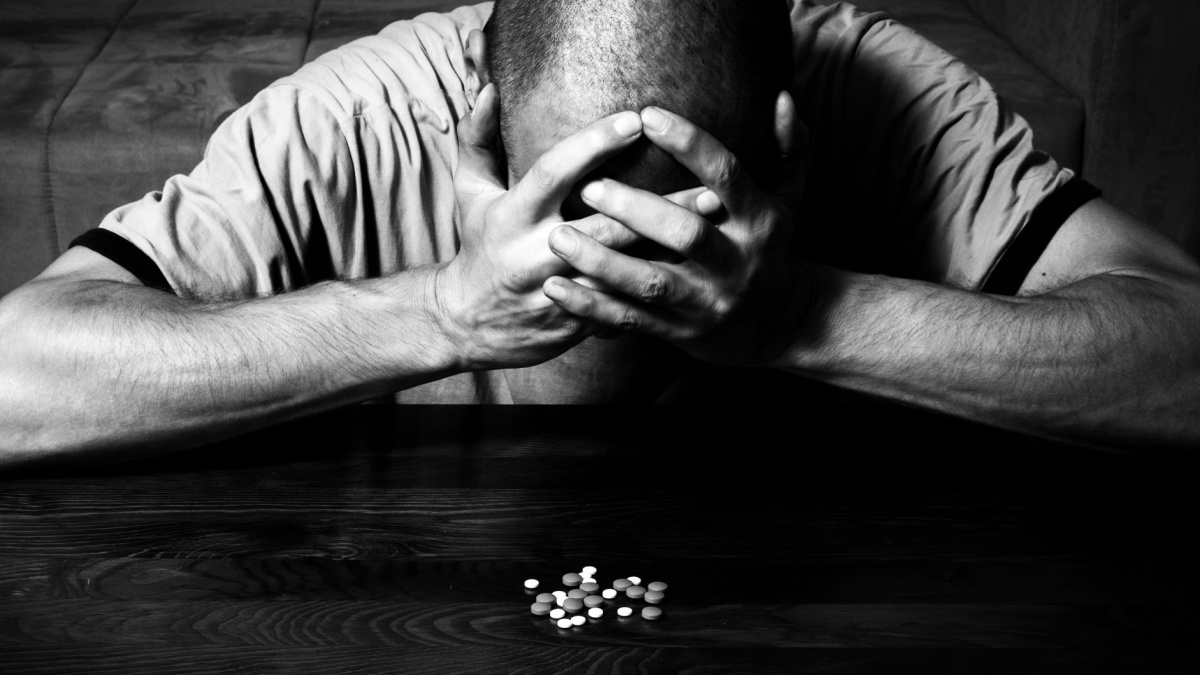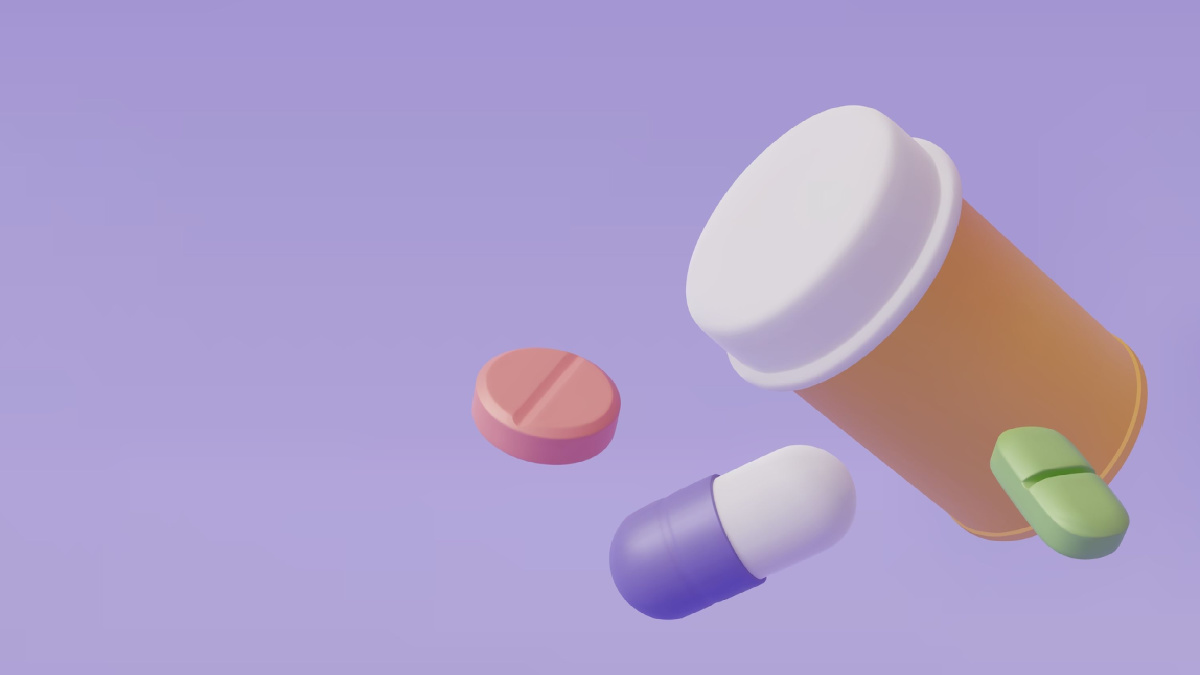Opioid addiction is a growing concern in the United States. It is a type of substance use disorder that occurs when an individual becomes dependent on opioids, which are powerful painkillers typically prescribed for pain management. Opioids work by binding to specific receptors in the brain and body, blocking pain signals and producing a sense of euphoria. However, prolonged use of opioids can lead to physical dependence, tolerance, and addiction. In this blog, let’s understand the causes and symptoms of opioid addiction including the different treatment at present.
Medication-Assisted Treatment (MAT)
Medication-Assisted Treatment (MAT) is a type of treatment for opioid addiction that involves the use of medication in combination with counseling and behavioral therapies. The goal of MAT is to reduce the withdrawal symptoms and cravings associated with opioid addiction, while also helping individuals to overcome the psychological and social factors that contribute to their drug use.
MAT typically involves the use of drugs such as methadone, buprenorphine, and naltrexone. These drugs work by binding to the same receptors in the brain as opioids, but in a less intense way, which helps to reduce withdrawal symptoms and cravings. The primary medications used for MAT are:
- Methadone: It is a long-acting opioid agonist that helps reduce cravings and withdrawal symptoms. It is typically provided through specialized clinics.
- Buprenorphine: It is a partial opioid agonist that can be prescribed by specially trained healthcare providers in an office-based setting. It helps reduce cravings and withdrawal symptoms.
- Naltrexone: It is an opioid antagonist that blocks the effects of opioids and reduces cravings. It can be administered orally or via a monthly injection.
Behavioral Therapies
Behavioral therapies are an important component of opioid addiction treatments. These therapies focus on changing the patient’s thoughts and behaviors related to drug use. One popular form of behavioral therapy is cognitive-behavioral therapy (CBT), which helps patients identify and change negative thought patterns that contribute to addiction. CBT can also help patients develop coping strategies to deal with triggers and cravings.
Another type of behavioral therapy is contingency management, which rewards patients for staying drug-free. For example, patients may receive vouchers for completing drug tests or attending counseling sessions. This type of therapy has been shown to be effective in reducing drug use and increasing treatment retention. Overall, behavioral therapies are an essential component of opioid addiction treatment and can help patients achieve long-term recovery.
Supportive Services
Supportive services play a significant role in the comprehensive treatment of opioid addiction by addressing the multifaceted needs of individuals in recovery. While they do not directly cure addiction, they provide essential support and resources that contribute to the overall effectiveness of treatment. Supportive services can help individuals in various ways, such as improving social support networks, enhancing coping skills, addressing co-occurring mental health conditions, and promoting long-term recovery. Examples of supportive services for opioid addiction treatment include:
- Support Groups: Support groups, such as Narcotics Anonymous (NA) and SMART Recovery, offer a supportive environment where individuals can connect with others who have similar experiences. These groups provide a platform for sharing struggles, successes, and strategies for maintaining sobriety.
- Counseling and Therapy: Individual counseling and therapy sessions can help individuals address underlying emotional and psychological factors contributing to their addiction. Therapists provide guidance, facilitate behavior change, and help individuals develop healthy coping mechanisms to navigate challenges in recovery.
- Vocational and Educational Assistance: Helping individuals reintegrate into the workforce or pursue educational opportunities can contribute to their overall well-being and provide a sense of purpose. Programs that offer vocational training, job placement assistance, or educational support can empower individuals in recovery to rebuild their lives.
- Housing and Financial Support: Stable housing and financial stability are crucial for maintaining recovery. Supportive services may include assistance with finding safe housing options, budgeting skills, and access to financial resources that help individuals establish a solid foundation for their recovery journey.
Limitations of Current Treatments
The current treatments for opioid addiction have several limitations that make it difficult for patients to achieve long-term recovery. For instance, medications like methadone and buprenorphine can be effective in reducing drug cravings and withdrawal symptoms, but they are not always accessible to everyone due to cost or limited availability. Additionally, some patients may not respond well to these medications or may experience negative side effects that make it difficult to continue treatment.
Another limitation is that these medications do not address the underlying psychological and social factors that contribute to addiction, such as trauma, stress, and lack of social support. This means that patients may still struggle with addiction even if they are taking medication, unless they receive comprehensive care that addresses all aspects of their addiction. Therefore, there is a need for new and innovative treatments that can address these limitations and provide better outcomes for patients.
Emerging Opioid Addiction Treatments
Opioid addiction has become one of the most pressing public health problems of our time. It is a complex and chronic condition that affects millions of people worldwide. While there are several evidence-based treatments available for opioid addiction, the need for more effective and innovative treatments is urgent. Emerging opioid addiction treatments offer hope for those struggling with addiction and their families. These treatments include new medications, therapies, and technologies that aim to reduce the risk of overdose, improve outcomes for patients, and address the underlying causes of addiction. Some of the most promising emerging treatments include medications that target specific parts of the brain, therapies that address trauma and other co-occurring mental health conditions, and new technologies that can enhance addiction treatment outcomes.
MAT has been shown to be effective in reducing opioid use, improving retention in treatment, and reducing the risk of overdose. However, it is important to note that MAT is not a one-size-fits-all approach, and treatment plans should be tailored to meet the individual needs of each patient.
Alternative Treatments
Alternative treatments for opioid addiction have become increasingly popular in recent years as the opioid epidemic continues to ravage communities across the country. These treatments can include anything from acupuncture and meditation to herbal supplements and cognitive behavioral therapy. While some alternative treatments may not have the same level of scientific evidence as traditional treatments like medication-assisted therapy, they can still be effective for some individuals and may be a good option for those who are looking for a more holistic approach to their recovery.
It’s important to note that alternative treatments should not be used as a substitute for evidence-based treatments like medication-assisted therapy, but rather as a complement to them. Alternative treatments can help individuals manage their symptoms and improve their overall well-being, but they may not be enough to fully address the complex nature of opioid addiction. As the opioid epidemic continues to evolve, it’s likely that we will see more research and development of alternative treatments that can be used in conjunction with traditional treatments to help individuals achieve long-term recovery.
Acupuncture
Acupuncture has emerged as a complementary treatment option for opioid addiction, offering a non-pharmacological approach to support individuals in their recovery journey. This ancient Chinese practice involves the insertion of thin needles into specific points on the body, aiming to restore the flow of energy and promote overall well-being. Acupuncture for opioid addiction primarily focuses on reducing withdrawal symptoms, managing cravings, and addressing the underlying imbalances in the body.
While the exact mechanisms of how acupuncture works in addiction treatment are not fully understood, some studies suggest that it may stimulate the release of endorphins and modulate the brain’s reward system. As part of a comprehensive treatment plan, acupuncture shows promise in supporting individuals during detoxification, easing withdrawal symptoms, and promoting a sense of relaxation and well-being. However, it’s important to note that acupuncture should be used in conjunction with evidence-based treatments such as medication-assisted treatment (MAT) and behavioral therapies for optimal results in the management of opioid addiction.
Acupuncture
Acupuncture has emerged as a complementary treatment option for opioid addiction, offering a non-pharmacological approach to support individuals in their recovery journey. This ancient Chinese practice involves the insertion of thin needles into specific points on the body, aiming to restore the flow of energy and promote overall well-being. Acupuncture for opioid addiction primarily focuses on reducing withdrawal symptoms, managing cravings, and addressing the underlying imbalances in the body.
While the exact mechanisms of how acupuncture works in addiction treatment are not fully understood, some studies suggest that it may stimulate the release of endorphins and modulate the brain’s reward system. As part of a comprehensive treatment plan, acupuncture shows promise in supporting individuals during detoxification, easing withdrawal symptoms, and promoting a sense of relaxation and well-being. However, it’s important to note that acupuncture should be used in conjunction with evidence-based treatments such as medication-assisted treatment (MAT) and behavioral therapies for optimal results in the management of opioid addiction.
Meditation
Meditation has gained recognition as a valuable complementary treatment for opioid addiction, offering a holistic approach to support individuals in their recovery. Meditation involves focusing one’s attention and achieving a state of deep relaxation and mental clarity. As part of addiction treatment, meditation techniques such as mindfulness meditation can help individuals develop awareness of their thoughts, emotions, and physical sensations without judgment.
This practice can enhance self-regulation skills, reduce stress, manage cravings, and improve overall well-being. Studies have shown that regular meditation practice can positively impact brain function, including areas related to self-control, decision-making, and emotional regulation. Incorporating meditation into a comprehensive treatment plan, alongside other evidence-based approaches, can provide individuals with valuable tools to navigate the challenges of opioid addiction recovery and promote long-term healing.
Herbal Supplement
Using herbal supplements as a treatment for opioid addiction is an area of growing interest, although it is important to note that the evidence supporting their effectiveness is limited. Some herbs have been traditionally used to support the management of addiction by targeting various aspects of the recovery process. For instance, herbs like Kratom and Kava have been suggested to help reduce opioid cravings and withdrawal symptoms. Other herbs, such as St. John’s Wort and Passionflower, are known for their potential mood-stabilizing and anxiety-reducing effects, which can aid in the emotional challenges of addiction recovery.
The Future of Opioid Addiction Treatments
With the ongoing research and development of new medications and therapies, individuals struggling with opioid addiction will have more options available to them. The government must focus on prioritizing funding for addiction research and treatment to combat this epidemic.
However, it is also essential to address the root causes of addiction, such as poverty, trauma, and mental illness. A comprehensive approach that addresses both the physical and psychological aspects of addiction will be crucial in achieving long-term recovery. With continued efforts and advancements in treatment, we can hope to see a decrease in opioid addiction and a brighter future for those affected by this devastating disease.
Herbal Supplement
Using herbal supplements as a treatment for opioid addiction is an area of growing interest, although it is important to note that the evidence supporting their effectiveness is limited. Some herbs have been traditionally used to support the management of addiction by targeting various aspects of the recovery process. For instance, herbs like Kratom and Kava have been suggested to help reduce opioid cravings and withdrawal symptoms. Other herbs, such as St. John’s Wort and Passionflower, are known for their potential mood-stabilizing and anxiety-reducing effects, which can aid in the emotional challenges of addiction recovery.
The Future of Opioid Addiction Treatments
With the ongoing research and development of new medications and therapies, individuals struggling with opioid addiction will have more options available to them. The government must focus on prioritizing funding for addiction research and treatment to combat this epidemic.
However, it is also essential to address the root causes of addiction, such as poverty, trauma, and mental illness. A comprehensive approach that addresses both the physical and psychological aspects of addiction will be crucial in achieving long-term recovery. With continued efforts and advancements in treatment, we can hope to see a decrease in opioid addiction and a brighter future for those affected by this devastating disease.









